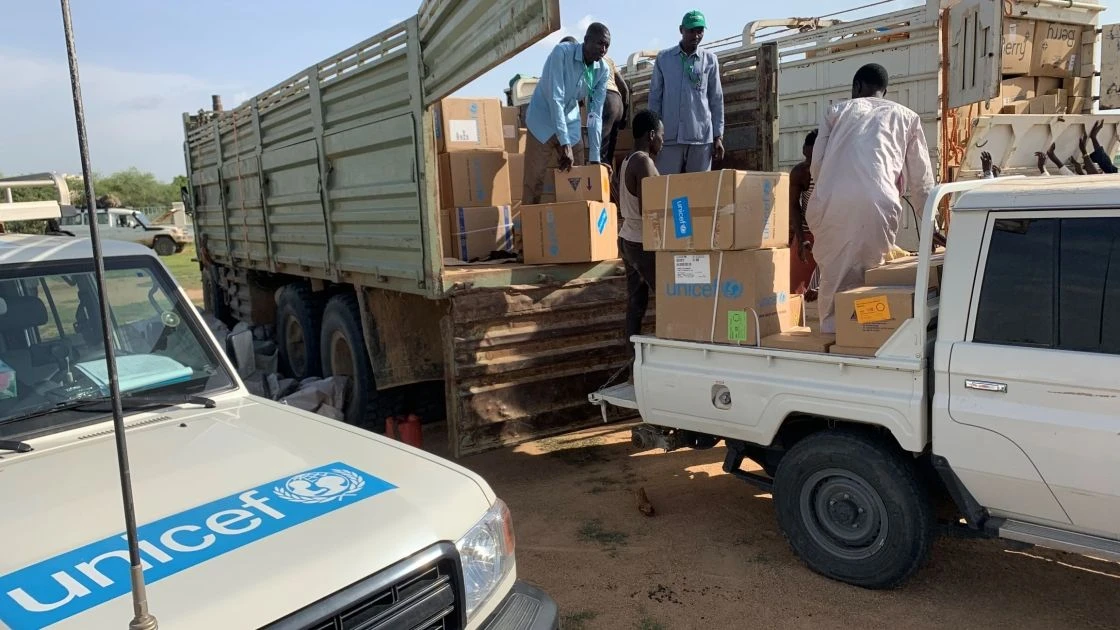
Concern, in partnership with UNICEF, delivers lifesaving supplies to Sudan
Amidst the conflict in Sudan, Concern and UNICEF delivered nine tons of medical supplies to conflict-affected areas of West Darfur – the first to reach many of the health facilities since fighting began in April.
The joint aid mission between Concern Worldwide and UNICEF intends to reach malnourished children with supplies, including first aid kits, equipment for treating malnourishment, medicine, vitamins, water purification tables, equipment for midwives delivering babies, and test kits for acute water diarrhea, which is fatal if not treated.
This is the first shipment of medical supplies to reach many health facilities in the West Darfur region since the conflict began on April 15, which has seen over 1 million people flee the country and over 24 million needing aid, most of them children.
With UNICEF, the supplies were transported by trucks from neighboring Chad (where over 366,000 Sudanese refugees are now living in camps) to 10 health facilities in the Kulbus and Jebel Moon areas of West Darfur.
“These medical supplies are a ray of light in what has been a dark four and half months in Sudan,” said Concern Sudan’s System’s Director, Louise Foster.
“The health facilities we reached had no new supplies since the fighting started on April 15. Many were out of stock of many essential medicines and items needed to treat malnutrition.
“People fleeing conflict in other parts of the region were arriving at these health facilities, so this aid is crucial to ensure basic primary healthcare including the safe delivery of children.
“We are hugely proud of our team and UNICEF colleagues who worked together in very challenging conditions to get this aid into West Darfur, and we are grateful to the authorities who helped us make safe passage.
“The situation is desperate for many Sudanese families running out of food and drinking dirty water, which impacts children the most with many becoming malnourished and getting seriously sick.”
The Integrated Food Security Phase Classification (known as the IPC), a UN-led organization that issues famine warnings, said Sudan’s conflict and economic decline has left 6.3 million people (13 percent of the population) living in an emergency level of food insecurity, which is classified as “IPC Phase 4” and one level below famine (IPC Phase 5).
“We need to prevent famine and do everything we can to help the people of Sudan,” said Concern’s Regional Director for the Horn of Africa, Amina Abdulla.
“More funding for urgent humanitarian support is needed to save lives and prevent further escalation of this emergency.
“We will continue to work with UNICEF and other partners to provide as much humanitarian assistance as we can.”
Connect with us
If you would like to speak to a member of our team about any aspect of our work, please get in touch with us using the details below.
- Contact Candance

Candance Patel-Taylor
Vice President of Communications
